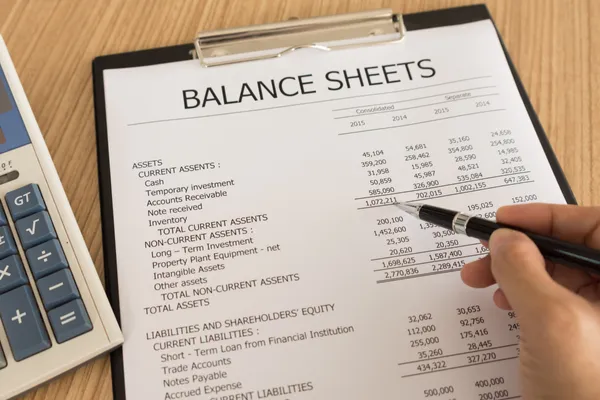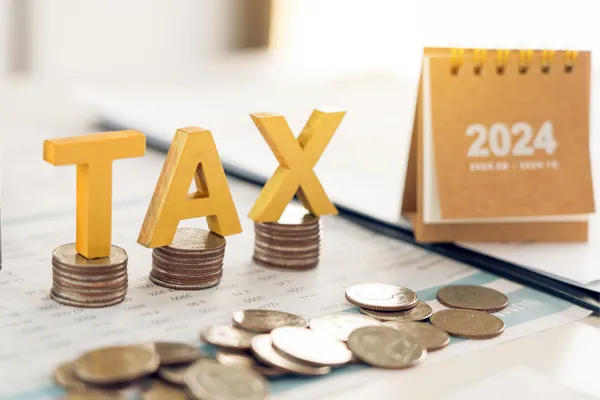Bookkeeping
Alleviating the Burden of Financial Management in your Business
Disorganized bookkeeping can lead to missed opportunities, tax penalties, and a lack of insight into your business's financial health. Inaccurate records make it difficult to track expenses, manage cash flow, and make informed business decisions. Without proper bookkeeping, you risk non-compliance with tax regulations and facing potential audits, which can be both stressful and costly.
Get Your Financials in Order Today!

Why Choose Our Bookkeeping Services?
Stress-free compliance with tax regulations.
Accurate and timely financial records.
Transform Your Financial Management with Expert Bookkeeping
Developing a strong financial foundation and understanding increases the success of the business
Bookkeeping is essential for maintaining a strong financial foundation.
It involves meticulously recording, categorizing, and managing all your business transactions.
Proper bookkeeping ensures your financial records are accurate and organized, providing a clear view of your business's financial status.
Our expert services ensure compliance with tax regulations, streamline financial processes, and offer valuable insights for strategic decisions.
Focus on what you do best and leave the financial details to us.

Accuracy with your Financial Records
Meticulous transaction recording
Regular reconciliations
Detailed financial statements
Monthly check-ins and reports

Compliance with Tax Regulation
Timely tax filings
Increase earnings / reduce penalties
Accurate tax deductions
Up-to-date regulatory compliance

Financial Insights For Better Decisions
Custom financial reports
Comprehensive profitability report
Cash flow analysis
Budgeting and forecasting
Take the First Step Towards Stress-Free Finances
Discover Your Financial Success Score

Hear What Our Clients Say
Hear from Our Satisfied Clients
Discover how we've helped businesses just like yours achieve their financial goals. Our client success stories highlight real-world examples of how our comprehensive services have made a difference.
Rory
Owner, Frontline Property Management

"I have been working with David for the better part of two years and my business has grown tremendously. With his business knowledge and skills has help me identify numerous areas in my business that needed help."
Maria D.

"Very professional! Maria helped me with all my needs and questions. I’m very happy with her service and will trust her again in the future. Thanks so much for all you did."
Jonathon
Owner, JP Finishes

"Because David knows his numbers, he has helped my grow my painting business by over 250% in the last 3 months. He has helped my focus on the what's important and build on that. I highly recommend David to any business owner that is serious about growing their business."
Jared B.

"Very professional! Maria helped me with all my needs and questions. I’m very happy with her service and will trust her again in the future. Thanks so much for all you did."
Chart of Accounts Guide & Set Up
Master Your Finances: Chart of Accounts Made Easy
Build a Solid Financial Foundation
Gain confidence in managing your finances by understanding and setting up your Chart of Accounts. Streamline your financial reporting and decision-making processes.
Benefit from clarity and organization that empowers better financial management.

Financial Navigator Blog
A Resource With Business And Personal Financial Wisdom and Growth
When an Expense Is Both Business and Personal What You Can Deduct
As a business owner, it’s common to have expenses that overlap between business and personal use. The tricky part is figuring out what portion is deductible. Done correctly, this can save you money at tax time. Done incorrectly, it can raise red flags with the tax office. Here are some detailed examples to guide you:
Home office costs
If you use a dedicated space in your home for work, you can deduct a percentage of household expenses such as rent or mortgage interest, utilities, internet, and insurance. The deduction is typically based on the square footage used for business compared to your total home.
Mobile phone and internet bills
Phones and internet are often mixed-use. You can deduct the percentage used for business calls, emails, or work-related activities. For example, if 70% of your phone usage is business-related, 70% of the bill is deductible.
Travel expenses
If a trip combines both business and personal activities, only the business portion counts. Airfare to attend a conference is deductible, but personal vacation days or family activities are not. Meals and accommodation are deductible only for the days you’re working.
Vehicle expenses
If you use your car for both personal and business purposes, you can only deduct the business portion. This is often tracked by mileage or a percentage of total use.
Equipment and software
If you buy equipment or software that you also use personally (like a laptop or design tool), you can claim the portion used for business. For example, if you use a laptop 80% for work and 20% for personal use, you can only claim 80% of the cost.
Utilities and subscriptions
If you share subscriptions such as streaming services, cloud storage, or design software between personal and business use, you can deduct only the business percentage. For example, if Canva is used strictly for your business, it’s fully deductible, but if it’s shared for personal projects, you’ll need to allocate accordingly.
You can deduct the business portion of mixed-use expenses, but you’ll need solid records like logs, receipts, or usage estimates to back up your claims.
Ready to get clarity on your expenses? Let us review your books, organize your accounts, and create a system that makes mixed-use deductions simple and stress-free.
Stay Informed and Empowered
We respect and protect your privacy. Your data is secure with us, and we promise not to spam your inbox.
Our emails are focused on delivering valuable and useful information to support you and your business.
Maximize Your Profits, Grow Your business and Reclaim Your Time

© 2025 Your FS Matrix Inc. - All Rights Reserved
Powered by SmartBiz Workspace and Designed by Biz 2 Biz Links Inc. Terms & Conditions | Privacy Policy
